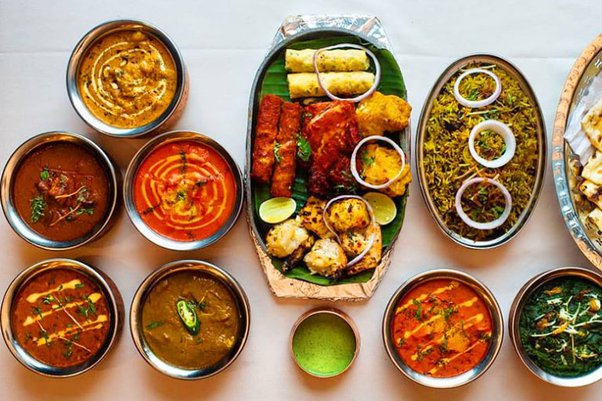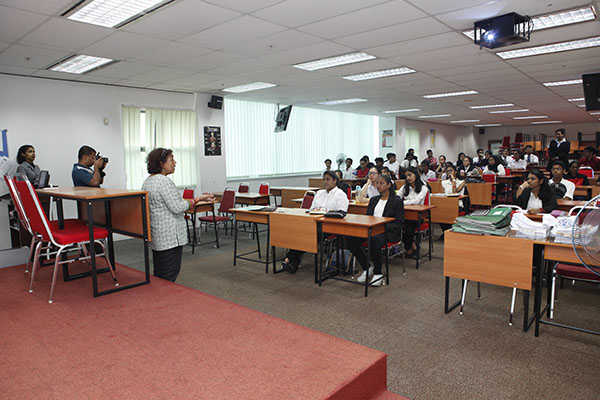
Start Chat with Mr. Gaurav

Start Chat with Ms. Anitha

Start Chat with Miss. Yogita
Malaysia has emerged as a top destination for students aspiring to pursue MBBS in Malaysia. Known for its high-quality education system, affordable tuition fees, and globally recognized medical universities, Malaysia offers a compelling option for those looking to study MBBS abroad. The country's rich cultural diversity, advanced healthcare infrastructure, and English-medium instruction make it a preferred choice for international students.
Malaysia is gaining prominence as a hub for medical education in Malaysia, attracting students from across the globe, including India. Here’s why you should consider MBBS abroad for Indian students in Malaysia:
2. Global Recognition and Accreditation of Medical Degrees
One of the key factors driving students to study MBBS in Malaysia is the global recognition of its medical degrees. Several Malaysian medical universities are recognized by:
This recognition ensures that graduates from medical universities in Malaysia for Indian students can pursue further studies, licensing exams, or medical practice in various countries worldwide.
3. Post-MBBS Opportunities in Malaysia and Beyond
Graduating with an MBBS in Malaysia opens doors to numerous career and academic opportunities, including:
Malaysia is emerging as a top destination for medical education, offering high-quality MBBS programs at affordable costs. International students, especially from India, prefer Malaysia due to its globally recognized Malasysian universities, English-medium instruction, and student-friendly environment. Here are the key benefits of pursuing an MBBS in Malaysia:
1. Affordable Tuition Fees and Cost of Living
One of the biggest benefits of MBBS in Malaysia is its affordability. Compared to Western countries, tuition fees and living expenses in Malaysia are significantly lower, making it an affordable MBBS program for international students.
2. English-Medium Programs
Most medical universities in Malaysia offer English-medium MBBS courses, ensuring that international students can study without any language barriers. This also helps in preparing for global medical licensing exams like USMLE and PLAB.
3. High-Quality Education with Modern Infrastructure
Malaysia is home to internationally recognized universities with state-of-the-art facilities, advanced laboratories, and well-equipped hospitals. The medical curriculum aligns with global standards, providing students with top-tier medical education.
4. Simplified Admission Process
The admission process for MBBS in Malaysia is straightforward, with minimal entrance requirements. Many universities do not require TOEFL or IELTS, making it easier for students to secure a seat in their desired institution.
5. Internationally Recognized Universities
Malaysian medical universities are recognized by organizations like WHO, MCI (NMC), and FAIMER, allowing graduates to practice medicine worldwide. This makes studying MBBS in Malaysia a valuable investment for aspiring doctors.
6. Safe and Friendly Environment for International Students
Malaysia is known for its multicultural society, offering a safe and welcoming environment for students from different backgrounds. The country ensures excellent student support services, comfortable accommodations, and diverse food options.
If you are planning to pursue an MBBS in Malaysia, it is essential to understand the eligibility requirements. Malaysia offers a seamless admission process, but students must meet specific academic and entrance criteria. Below are the key eligibility for MBBS in Malaysia details:
1. Academic Requirements
To be eligible for MBBS admission in Malaysia, students must meet the following academic criteria:
2. Age Limit
The age limit for MBBS in Malaysia is usually:
3. NEET Exam Qualification
For Indian students, NEET qualification for MBBS abroad is mandatory. A valid NEET score for admission to MBBS abroad ensures that students can practice medicine in India after completing their degree in Malaysia.
4. Other Admission Criteria
Apart from academic qualifications, students may need to meet the following:
Malaysia is home to some of the best medical universities in Malaysia, known for their high-quality education, global accreditations, and state-of-the-art infrastructure. These WHO-recognized universities in Malaysia provide excellent opportunities for international students pursuing MBBS.
| University Name | Location | Key Features | Recognitions & Accreditations |
|---|---|---|---|
| University of Malaya (UM) | Kuala Lumpur | Malaysia’s highest-ranked university, top-tier research facilities | WHO, NMC, ECFMG, GMC |
| Universiti Kebangsaan Malaysia (UKM) | Bangi | Strong research focus, globally recognized faculty | WHO, NMC, FAIMER, MQA |
| International Medical University (IMU) | Kuala Lumpur | First private medical university in Malaysia, student transfer programs with foreign universities | WHO, NMC, ECFMG, GMC |
| MAHSA University | Selangor | International student-friendly, practical-based learning | WHO, MQA, NMC |
| Taylor’s University | Subang Jaya | Modern medical curriculum, global exchange programs | WHO, MQA, NMC |
| AIMST University | Kedah | State-of-the-art infrastructure, internationally recognized degree | WHO, NMC, FAIMER |
| SEGi University | Kota Damansara | Focus on hands-on training and research-based curriculum | WHO, MQA, NMC |
Location: Kuala LumpurKey
Features:
Recognitions & Accreditations: WHO, NMC, ECFMG, GMC
The University of Malaya (UM) is the oldest and most prestigious university in Malaysia. It is renowned for its strong research programs, state-of-the-art medical facilities, and high academic standards. Medical graduates from UM are highly sought after worldwide due to the institution's reputation for excellence.
Location: BangiKey
Features:
Recognitions & Accreditations: WHO, NMC, FAIMER, MQA
Universiti Kebangsaan Malaysia (UKM) offers top-tier medical education, integrating modern research methodologies with practical clinical training. The university’s faculty includes internationally recognized experts who provide students with a comprehensive learning experience.
Location: Kuala LumpurKey
Features:
Recognitions & Accreditations: WHO, NMC, ECFMG, GMC
IMU stands out as a pioneer in medical education, offering flexible transfer programs to top medical institutions worldwide. Its curriculum is designed to equip students with the knowledge and practical skills required for a successful medical career.
Location: SelangorKey
Features:
International student-friendly environment
Practical-based learning approach
Strong industry collaborations
Recognitions & Accreditations: WHO, MQA, NMC
MAHSA University is known for its emphasis on hands-on training and real-world clinical experience. The university attracts a diverse student population from across the globe, ensuring a multicultural learning experience.
Location: Subang JayaKey
Features:
Recognitions & Accreditations: WHO, MQA, NMC
Taylor’s University offers a progressive medical curriculum with a strong emphasis on research and global exposure. It provides students with opportunities to participate in international exchange programs, enhancing their academic and professional development.
Location: KedahKey
Features:
Recognitions & Accreditations: WHO, NMC, FAIMER
AIMST University provides high-quality medical education with a focus on research and clinical expertise. Its modern campus is equipped with the latest technology, ensuring students receive top-tier training.
Location: Kota DamansaraKey
Features:
Recognitions & Accreditations: WHO, MQA, NMC
SEGi University combines theoretical learning with extensive hands-on training, preparing students for real-world medical challenges. The university’s research-oriented approach ensures graduates are well-equipped to excel in the medical field.
| Category | Details |
|---|---|
| Tuition Fees Breakdown | The MBBS fees in Malaysia vary depending on the university. Public universities typically have lower fees compared to private institutions. The cost ranges from $10,000 to $25,000 per year. |
| Hostel and Living Expenses | Living expenses in Malaysia are relatively affordable compared to Western countries. Monthly expenses, including accommodation, utilities, and transportation, range from $300 to $700. |
| Scholarships and Financial Aid Options | Many Malaysian universities offer scholarships for MBBS abroad students based on academic merit and financial need. Government and private scholarships are also available. |
| Comparison of Costs: Malaysia vs. Other Countries | Studying MBBS in Malaysia is more cost-effective compared to countries like the USA, UK, or Australia, where tuition fees can be significantly higher. Additionally, living costs are lower than in most Western nations. |
| Food and Miscellaneous Expenses | Monthly food expenses range from $150 to $300, depending on lifestyle and eating habits. Other expenses such as books, transportation, and leisure activities can add another $100 to $200 per month. |
Step-by-Step Admission Guide
Key Deadlines and Timelines
Required Documents Checklist
Application Tips for International Students
Duration of the Program
Structure of the Medical Program
Subjects and Clinical Training
Internship Opportunities and Practical Exposure
Examination Patterns and Assessments
Clinical Training and Internship Opportunities
Culture and Lifestyle
Life in Malaysia for Indian Students
Climate and Weather: What to Expect
Tropical Climate: Malaysia has a warm and humid climate throughout the year, with an average temperature of 25–32°C.
Monsoon Seasons: The country experiences two monsoon seasons, bringing heavy rains from May to September and November to March.
Humidity Levels: Due to its coastal location, Malaysia has high humidity levels that can take time for newcomers to adjust to.
Light Clothing Recommended: Students should pack light cotton clothes, raincoats, and umbrellas for comfort.
| Factors | University Hostels | Private Housing |
|---|---|---|
| Cost | More affordable, fixed fees | Varies based on location and amenities |
| Location | Inside or near the university campus | Available in various locations, may require commuting |
| Facilities | Basic amenities (bed, study table, Wi-Fi, shared kitchen) | Fully furnished or unfurnished, more privacy |
| Security | High security with university guards and CCTV | Depends on the area and building security measures |
| Social Life | More opportunities to interact with fellow students | More independence, but less social interaction |
| Rules & Regulations | Strict rules on visitors, curfews, and conduct | Flexible lifestyle, no curfews |
| Convenience | Close to classes, libraries, and dining halls | Need to arrange for transportation and meals |
| Suitability | Ideal for first-year students or those preferring structured living | Suitable for students seeking privacy and flexibility |
Student Visa Application Guide
Travel Tips for First-Time International Students
Safety Measures for International Students
Campus Security and Student Helplines
Health Insurance and Medical Facilities for Students
Student Support Services
FMGE (Foreign Medical Graduate Exam) and NEXT Preparation
Career Options After Completing MBBS in Malaysia
FMGE/NEXT Preparation and Success Rates
Higher Studies: PG and Specializations in India and Abroad
Work Opportunities in the USA, UK, and Other Countries
Residency and Higher Studies Options
MBBS in Malaysia vs. Russia, China
Benefits of Choosing Malaysia Over Other Destinations
Language and Cultural Barriers
Challenge: Adjusting to a new culture and language can be overwhelming for international students.
Solution: Most Malaysian universities offer English-medium MBBS programs, and students can take Malay language courses to ease communication. Engaging in local cultural events also helps in cultural adaptation.
Adapting to the Education System
Challenge: The teaching methodology and grading system may differ from a student’s home country.
Solution: Students should attend orientation programs, connect with professors, and join study groups to understand the academic structure and expectations.
Tips to Overcome Homesickness
Challenge: Many students feel homesick when studying far from home.
Solution: Staying connected with family via video calls, engaging in student communities, and exploring Malaysia’s diverse culture can help students feel at home.
Step-by-Step Application Guide
Choosing the Right University
Assistance from Educational Consultants
Myth 1: MBBS in Malaysia Is Not Globally Recognized
Fact: Many Malaysian medical universities are recognized by WHO, MCI (NMC), GMC, and other global medical bodies. Graduates can practice worldwide after clearing licensing exams like USMLE, PLAB, or FMGE.
Myth 2: The Education Standard in Malaysia Is Lower
Fact: Malaysia follows an advanced medical curriculum aligned with international standards, and many universities have collaborations with top global medical institutions.
Myth 3: Language Barrier Is a Problem
Fact: Most MBBS programs in Malaysia are taught in English, making it easy for international students to understand and adapt.
Malaysia stands out as an excellent destination for MBBS due to its globally recognized medical universities, affordable tuition fees, English-medium instruction, and high-quality education. With modern infrastructure, extensive clinical training, and international accreditations, Malaysia provides students with a strong foundation for a successful medical career.
Graduates from Malaysian medical universities can pursue medical practice worldwide by qualifying for licensing exams like FMGE, USMLE, PLAB, and AMC. The country’s student-friendly environment, diverse culture, and excellent healthcare system make it an attractive choice for international students, especially from India.
MBBS in Malaysia Practical Training, Classrooms, Indian Food, Hostel, Indian Students









